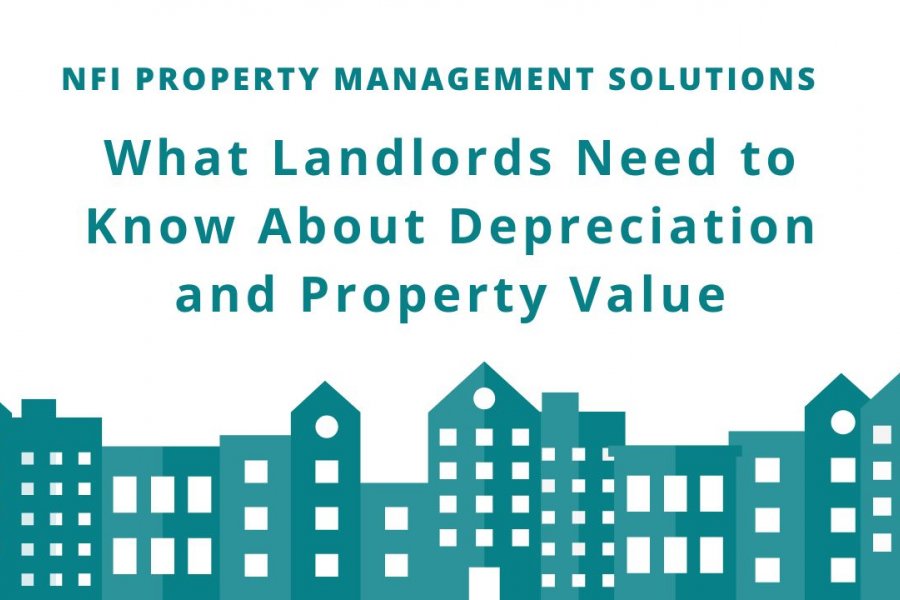
- Depreciation isn't just accounting—it’s a long-term investment tool that affects your rental property's cash flow, taxes, and resale value.
- Proper tracking of improvements and depreciation schedules helps maximize tax benefits and avoid costly surprises at sale or refinance.
- Upgrades matter more when classified correctly—capital improvements can boost value and be depreciated, unlike simple repairs.
- Strategic depreciation planning allows Florida landlords to protect wealth, plan for recapture taxes, and optimize exit strategies.
Have you ever wondered how depreciation affects the true value of your rental property and what it means for your long-term returns? Many landlords focus on the immediate income their property generates but overlook how depreciation impacts both their bottom line and future resale potential.
Understanding this concept is not just about accounting; it is about making informed investment decisions that protect and grow your wealth. Whether you are planning to hold the property for decades or eventually sell, knowing how depreciation works can help you optimize value and tax benefits.
At NFI Property Management Solutions, we guide Florida investors through these details so they can make the most of their real estate investments.
Contact Us!
Decoding Depreciation: What Every Landlord Should Understand
As a Florida landlord, understanding depreciation means knowing how tax rules let you spread your building’s cost across years, which reduces taxable income and changes your property basis. Who should care? Any investor holding rental homes.
What to record are purchase price allocation, land value, qualified improvements, and service start dates. When it matters is during ownership and at sale. Why it is decisive is it shapes cash flow and tax outcomes. How to proceed: keep detailed records and consult NFI Property Management Solutions for tailored advice.
The Link Between Depreciation and Your Property’s True Worth
As a Florida landlord, distinguishing book value from market value is essential because depreciation lowers your tax basis without necessarily reducing buyer interest. Who benefits are landlords planning to refinance, sell, or hold. What occurs is accumulated depreciation reduces adjusted basis, potentially raising taxable gains at sale.

When it matters is during appraisal, sale, or refinancing. Why care is to anticipate tax outcomes and price realistically. How to act: document improvements, keep depreciation schedules current, and seek professional valuation help.
Why Depreciation Matters More Than You Think
As a Florida landlord, depreciation matters because it affects your yearly tax bill and long term returns, not just accounting lines. Those affected are all rental property owners with structures to depreciate. What it does is shift taxable income, often increasing cash retained annually while accumulating deductions.
When it shows up is on annual tax filings and at sale, due to depreciation recapture. Why it is crucial is that it influences improvements for residents and cash flow planning. How to respond: prioritize strategic improvements and accurate depreciation tracking.
Breaking Down the Numbers Without the Jargon
As a Florida landlord, you do not need accounting jargon to make depreciation work for you. Who should get involved is your accountant or advisor alongside your property records. What to do is simple: start with the purchase invoice, separate land value from building cost, list capital improvements, and set start dates for each item.
When to update is after any qualifying renovation or at acquisition. Why this matters is clear visibility on tax deductions and resale basis. How to begin: organize receipts, maintain depreciation schedules, and review them annually.
The Role of Upgrades in Protecting Property Value
As a Florida landlord, knowing how upgrades affect depreciation protects value and boosts appeal. Who benefits are owners planning renovations to attract quality residents or raise rents. What to check is whether a cost is a repair or a capital improvement, since only improvements are depreciable.

When to act is before marketing, lease renewals, or refinancing. Why it matters is that the right upgrades improve cash flow and resale prospects. How to start: document receipts, secure permits, and consult your accountant.
About Us!
How Depreciation Can Shape Your Long-Term Strategy
As a Florida landlord, treat depreciation as part of your long-term investment plan. Who needs this are buy-and-hold investors and owners considering refinance or sale. What depreciation does is spread building costs over years, lowering taxable income annually while creating potential recapture at sale.
When to plan is at purchase, before major improvements, and ahead of listing. Why this matters is it influences cash-on-cash returns and exit taxes. How to act: model hold periods, compare tax scenarios, and consult an advisor.
Avoiding Common Depreciation Mistakes Landlords Make
Avoiding depreciation mistakes saves Florida landlords money and stress. Who commonly errs are new investors and busy owners who lump repairs and improvements together. What to watch for is misclassification, failing to separate land value from building cost, and missing to update depreciation after renovations.
When errors show up is during audits, refinancing, or sale when recapture applies. Why it matters is unexpected tax bills and reduced net proceeds. How to prevent problems: organize receipts, keep schedules current, and work with a CPA.
Turning Depreciation Knowledge into Profitable Decisions
Turning depreciation knowledge into profit helps Florida landlords improve cash flow and plan for tax events. Who benefits are owners who reinvest savings or pay down debt. What to do is time improvements to balance current deductions and future basis, track capital expenditures carefully, and evaluate bonus depreciation options.

When to review is annually and before selling or refinancing. Why this strategy works is it preserves cash now while preparing for recapture later. How to begin: run simple projections and consult a local advisor.
Bottom Line
Understanding depreciation is more than a tax advantage; it is a strategy to protect your property’s value and boost long-term returns. For investors in Florida, NFI Property Management Solutions can help you navigate the details, track improvements accurately, and make informed decisions that align with your investment goals.
Their local expertise ensures you capture every possible benefit while avoiding costly mistakes. Reach out to NFI Property Management Solutions today to discuss your options and determine the best approach for your rental property’s future.